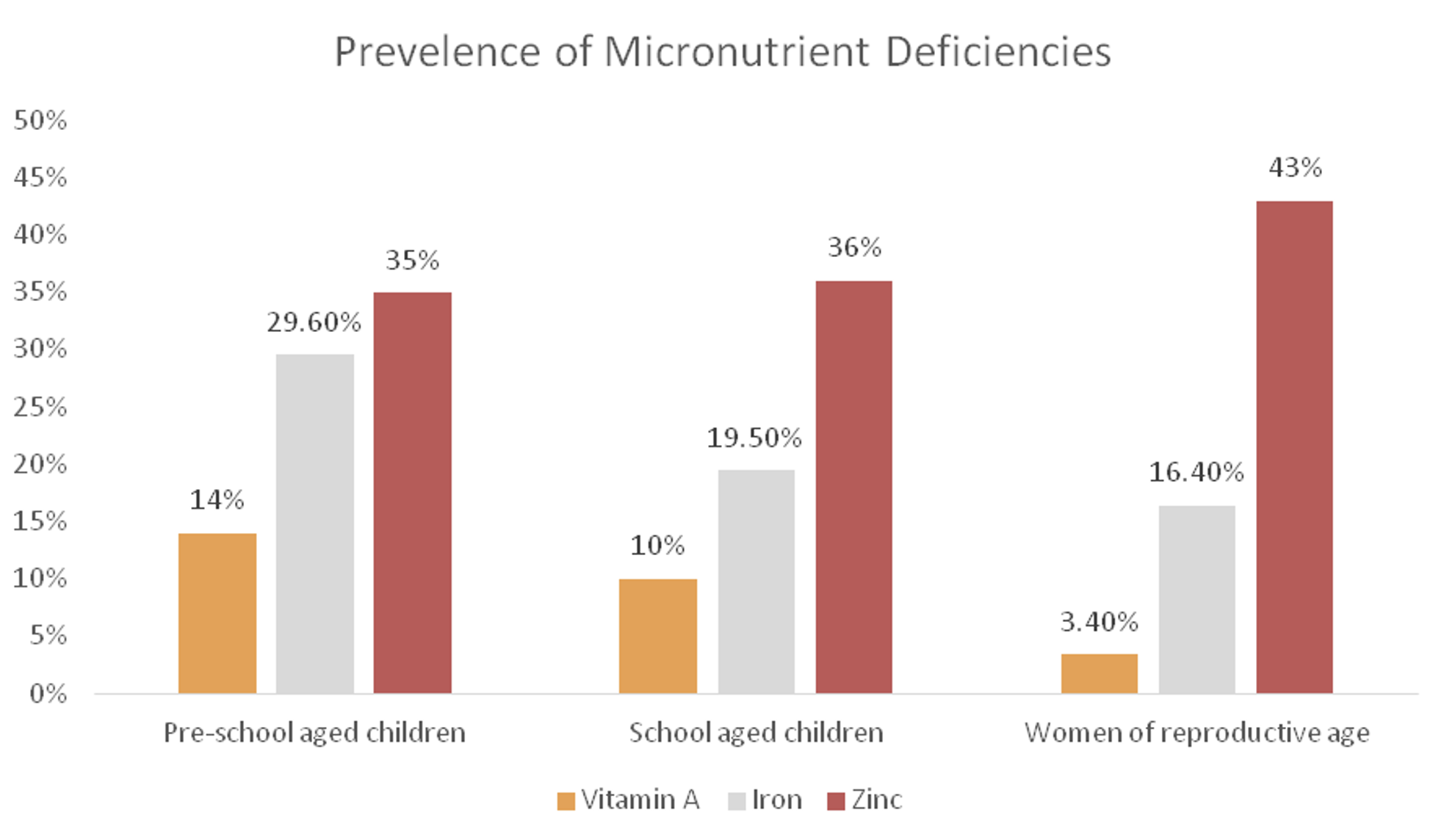When the Government of Ethiopia (GoE) approved policies making the fortification of wheat flour and edible oil mandatory in Ethiopia in June 2022, the country took a leap in its decade old battle to employ fortification as a means of increasing consumption of micronutrients. The GAIN Large Scale Food fortification Programme aims to provide populations with the basic #micronutrients, also known as vitamins and minerals, that they need for brain, physical and healthy development. In line with this, in Ethiopia, GAIN is working with government and the private sector to move forward the mandatory fortification of wheat flour and edible oil.
In October, 2023, fortification in Ethiopia made yet more progress when GAIN Ethiopia facilitated the shipment of 1500 kg of edible oil fortification premix, which arrived at the warehouses of the Ethiopian Industrial Inputs Development Enterprise.
Large Scale Food Fortification Project Manager Biruk Getachew notes that this amount of edible oil fortification premix is enough to produce 22,388 metric tons of fortified edible oil and the potential to reach over 3,000,000 consumers per year in Ethiopia*. While this is only a drop in the bucket, relative to Ethiopia’s micronutrient needs - it is evidence of the importance of dedicating resources, prioritisation of nutrition, and collaboration among actors towards a healthier diet for all.
The need for supply of micronutrient fortificants
Micronutrient deficiencies are a major and prevalent health challenge, with the WHO estimating over 2 billion people in the world to be deficient in key vitamins and minerals, which are essential for proper growth. Micronutrient deficiencies can cause serious health conditions; for example a lack of folate and iron can lead to anaemia, vitamin A deficiency is a leading cause of blindness in children while severe iodine deficiency can result in brain damage during pregnancy.
 (Stevens, Beal, Mbuya, Luo, & Neufeld, 2022)
(Stevens, Beal, Mbuya, Luo, & Neufeld, 2022)
 (Ethiopian Public Health Institute, 2016)
(Ethiopian Public Health Institute, 2016)
Why does this keep happening? GAIN’s Deputy Director of Programmes Penjani Mkambula explains “Staple foods are a way of life”, explaining that the issue is not as much scarcity, as it is the narrow diets consumed by many. He further elaborated that high consumption of staple foods is generally because “people want what fill their stomach, they want something affordable, and they need it to be easily accessible”. Unfortunately, most staple foods are poor sources of nutrients.
While we should all strive to influence people’s decisions (food cultures, choices), fortification allows us to use the staples (such as flour and oils) to make use of commodities that are already being consumed. “In an ideal world – we’d all be consuming diverse and nutrient rich diets” explains Penjani “But that ignores the real world context”
 (Food and Agriculture Organisation (FAO), 2023)
(Food and Agriculture Organisation (FAO), 2023)
Fortification, the enrichment of foods that exist in the market with micronutrients, will not eradicate this challenge for Ethiopia, yet its importance cannot be overstated as a means of supplementing efforts to meet the country’s challenges (learn more here).
It’s a unique intervention, as Penjani explained " it’s a public health intervention, undertaken by the private sector”. As a result, the majority of the burden lies on the shoulders of private sector actors, who bear most of the cost. “However” says Penjani “they recognise that doing the right thing leads to a healthier community, workforce and economy – and the win-win-win results are an incentive”
The public sector, having already made fortification mandatory in Ethiopia – the aim now is to ensure strong monitoring mechanisms and enforcement, as well as improve coordination among stakeholders.
Finally, there is need for an enabling environment to enable private sector vitamin and mineral premix supplies and distribution particularly regarding foreign exchange allocation for premix imports. While fortification premix is not a medicine , it is critical for public health, so it’s important that it’s treated as a priority commodity for foreign exchange allocation.
In addition to the oil premix supply GAIN also procured and donated 37500 KG wheat flour premix composed of micronutrients (vitamins and minerals). Both the wheat flour and edible oil premixes will be stored at Ethiopian Industrial Input Development Enterprise (EIIDE) store and distributed to the processing industries
Despite the achievement, efforts will continue to ensure the two commodities are fortified with essential micronutrients “This is just one step of many that GAIN Ethiopia is taking to support the multi-party effort to ensure every Ethiopian has access to the micronutrients they need to live full and healthy lives” emphasised Biruk.
*Key Assumptions:
- Fortified edible oil with the addition rate of 67gm per metric ton ( Source: Ethiopian standard CES 310)
- Consumed quantity(7L)/ Person/year( Source: EPHI: National Information Platforms for Nutrition (NIPN) Evidence Brief, April 2022)